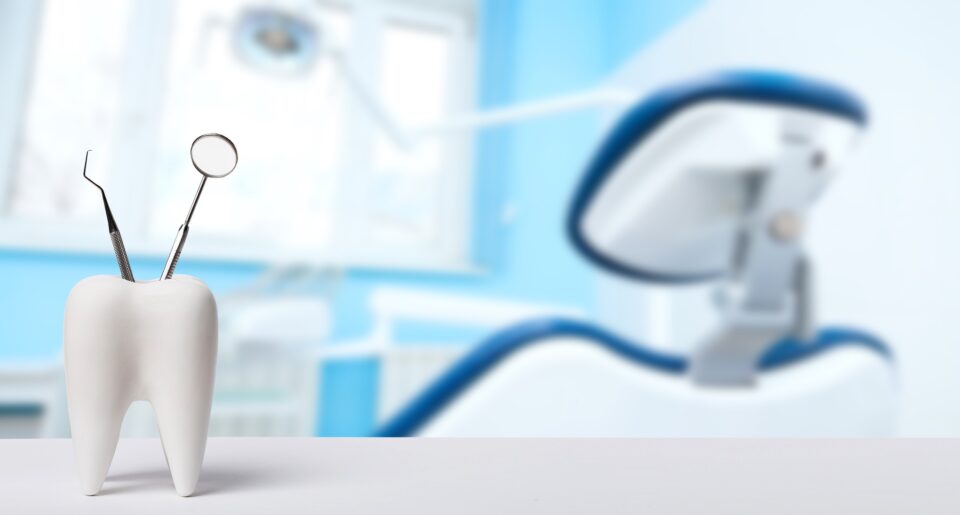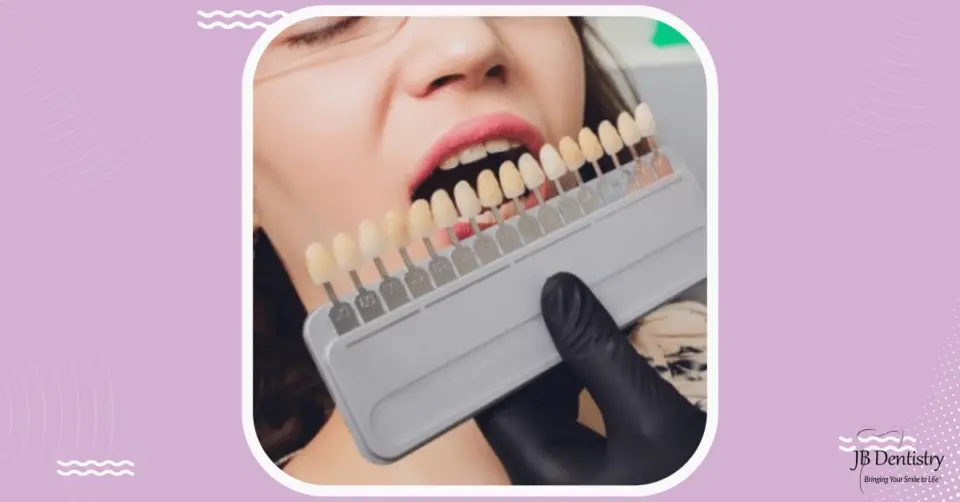Let’s give your dental crown a little credit—it deserves it. Crowns often don’t get the spotlight they should. They’re like the reliable co-star in a movie: not flashy, not loud, but essential to keeping everything running smoothly. Without them, your smile might look great for now, but it wouldn’t last long under pressure.
If you’ve ever had a tooth that was cracked, decayed, or weakened, your crown likely stepped in as the hero. It’s the invisible guardian that takes the daily wear and tear so the rest of your mouth can function without worry. Yet, most people barely think about their crowns until something goes wrong.
So let’s change that. Here’s why your dental crown might just be the unsung MVP of your mouth, and why it deserves a little more love.
How Does a Dental Crown Protect a Damaged Tooth?
Imagine your tooth as a house. The foundation (your root) might be solid, but if the walls and roof are damaged, the structure won’t hold up. A dental crown is like that new roof—it covers, protects, and strengthens what’s underneath.
When a tooth is weakened—by decay, cracks, root canals, or trauma—it loses its natural protection. That’s where a crown comes in. It acts as a custom-made shield, wrapping around your tooth to restore its strength, shape, and appearance.
Here’s how it helps:
- Reinforces structure: A crown prevents a damaged tooth from cracking or breaking further.
- Protects from bacteria: Once sealed, it blocks harmful bacteria from entering and causing new decay.
- Restores chewing ability: You can bite into your favorite foods again without hesitation.
- Improves appearance: Modern crowns look so natural that no one will ever know it’s not your real tooth.
It’s not just a cover—it’s a full-body armor for your tooth. Crowns absorb daily stress, especially on molars that handle the heavy lifting of chewing. Without them, that tooth would likely need to be extracted, leading to more complicated treatments down the road.
So yes, while crowns might seem “ordinary,” they’re the quiet protectors that keep your smile functional and beautiful for years.
What Materials are Commonly Used for Dental Crowns?
Crowns have come a long way since the days when they were all made of shiny metal that practically announced themselves. Now, they can be crafted from a variety of materials that balance function, aesthetics, and comfort.
Here’s a look at the most common types:
1. Porcelain or Ceramic Crowns
These are the supermodels of dental restorations—gorgeous, natural-looking, and almost indistinguishable from real teeth. Porcelain crowns are ideal for front teeth, where appearance matters most. They reflect light just like enamel does.
Pros:
- Excellent color match
- No metal allergies
- Highly aesthetic
Cons:
- Slightly more prone to chipping under extreme pressure
2. Porcelain-Fused-to-Metal (PFM) Crowns
Think of these as the perfect hybrid. They combine the strength of metal with the natural appearance of porcelain. The metal base adds durability, while the porcelain outer layer keeps things looking natural.
Pros:
- Strong and durable
- Good aesthetics
Cons:
- Over time, the metal underneath may create a faint gray line near the gums
3. Gold or Metal Alloy Crowns
Gold crowns might sound old-school, but they’re still around for a reason. They’re incredibly durable and gentle on opposing teeth. Some patients even love the bold, classic look.
Pros:
- Extremely long-lasting
- Great for molars and heavy chewers
- Minimal wear on other teeth
Cons:
- Not exactly discreet
4. Zirconia Crowns
Zirconia is the modern favorite—strong, biocompatible, and beautifully natural-looking. It’s like the best of all worlds.
Pros:
- Exceptional strength
- Can be color-matched
- Long-lasting and chip-resistant
Cons:
- Slightly higher cost than traditional materials
Choosing the right crown material depends on several factors—location in the mouth, budget, and personal preferences. But no matter which type you go with, each one shares the same goal: to protect and restore your tooth while keeping your smile looking flawless.
Why are Dental Crowns Important for Maintaining Oral Health?
Dental crowns aren’t just about cosmetics—they play a big role in your overall oral health. If you’ve ever had a large filling, a root canal, or a tooth fracture, you know how vulnerable a tooth can become. Crowns help maintain the balance and integrity of your entire bite.
Here’s what happens when crowns do their job right:
1. They Prevent Tooth Loss
Once a tooth becomes too weak, it’s at risk of breaking beyond repair. Crowns help preserve your natural tooth for as long as possible, avoiding the need for implants or bridges later.
2. They Maintain Bite Alignment
Your teeth work as a team. When one goes missing or gets damaged, the rest can shift out of place. A well-fitted crown helps maintain proper spacing and prevents misalignment or jaw discomfort.
3. They Protect Against Future Decay
Crowns seal off the damaged tooth, making it harder for bacteria to sneak in. That’s especially important for teeth that have had root canals, which are more susceptible to infection.
4. They Boost Confidence and Comfort
Let’s be real—no one wants to feel self-conscious when they smile or eat. A crown can restore both your confidence and your comfort by giving you a strong, natural-looking tooth again.
In short, dental crowns keep your oral ecosystem balanced. Without them, one weak tooth can start a domino effect of problems—from bite misalignment to bone loss. It’s a small piece of dental art with a big job.
How Long Do Dental Crowns Usually Last Before Needing Replacement?
Here’s the good news: when you take care of your crowns, they’ll take care of you for a long time. The average crown lasts anywhere from 10 to 15 years, but with great oral hygiene, some can last 20 years or more.
Their lifespan depends on several factors:
- Material type: Gold and zirconia tend to outlast porcelain.
- Oral hygiene habits: Brushing twice daily and flossing around the crown’s edge helps prevent decay at the gumline.
- Bite and grinding habits: If you grind your teeth at night, a nightguard can prevent premature wear.
- Diet: Hard candies and ice are the enemies of crowns everywhere.
Even the best crown isn’t indestructible, though. Over time, gums recede, bite patterns change, and everyday use takes a toll.
Signs Your Crown Might Need Attention:
- Sensitivity around the crowned tooth
- Visible cracks or chips
- Looseness or movement when biting
- Dark lines near the gum (for metal-based crowns)
Regular dental visits can help catch these issues early before they turn into bigger problems. Sometimes all it takes is a quick adjustment or polish to extend your crown’s lifespan.
Remember, your crown isn’t meant to be a temporary fix—it’s a long-term investment in your oral health. Treat it well, and it’ll quietly keep your smile strong for years.
A Crown Worth Smiling About — Visit JBDentistry
If you’ve ever had a dental crown, take a moment to appreciate it. That little piece of craftsmanship has been protecting your tooth, your bite, and your confidence every single day. Crowns might not get the same attention as whitening or veneers, but they’re often the reason your smile looks and feels complete.
At Jaline Bocuzzi, DMD, PA // JBDentistry, we take pride in crafting crowns that don’t just restore your teeth—they restore your confidence. Whether you need a brand-new crown, a replacement, or just a checkup to make sure yours is still in great shape, we’ll make the process comfortable, precise, and even a little enjoyable.
Schedule your appointment with JBDentistry today and discover why the most underappreciated part of your smile might also be the most important.


